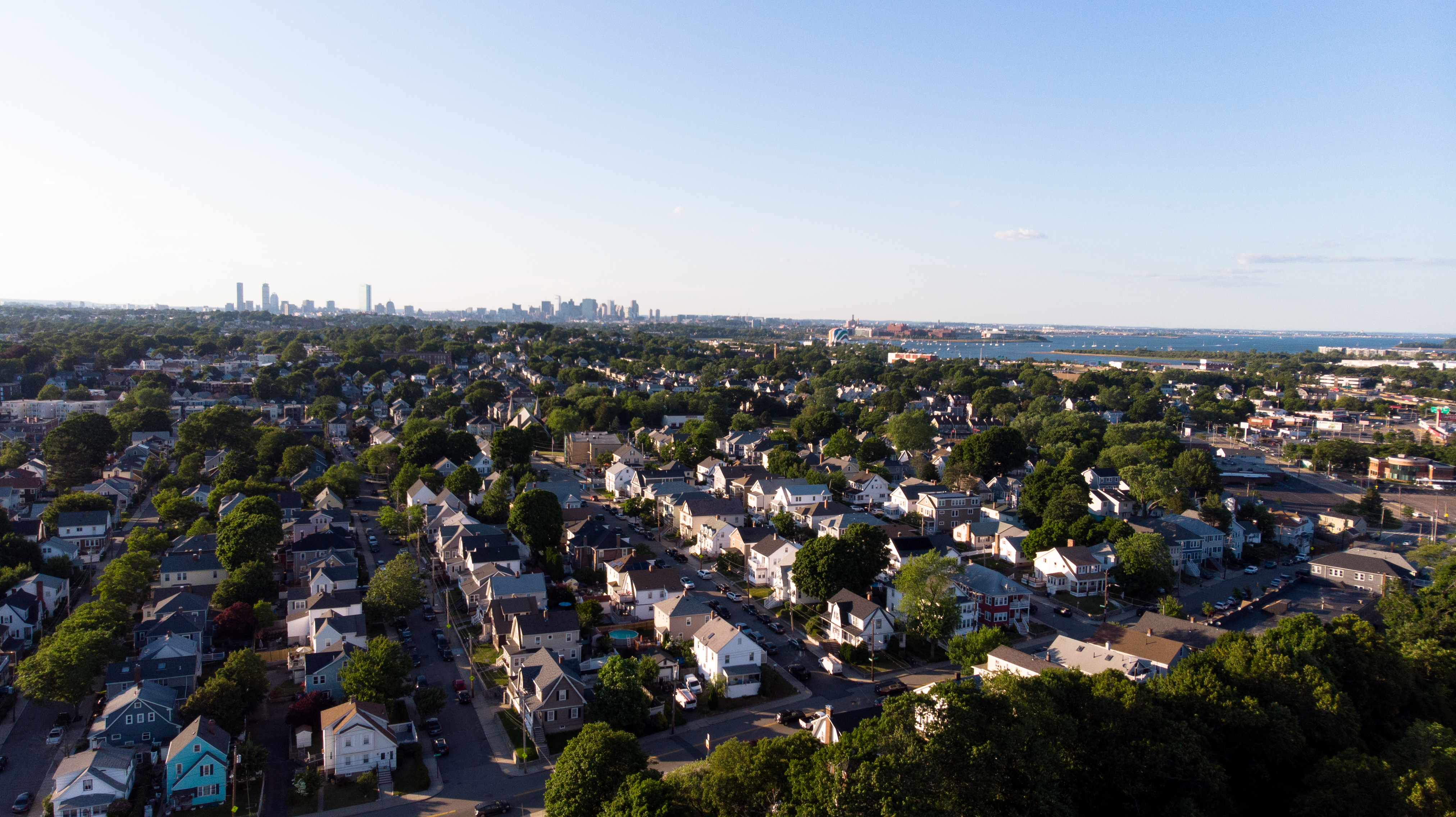The purpose of MetroCommon 2050 is to create a shared vision for what the residents and workers of Metro Boston want our region to be in the future and then provide a path to achieving that vision, informed by data and the lived experiences of our region’s residents. Achieving these goals will require focused efforts to enact change in five, interrelated topics, which we call "Action Areas". Some recommendations will help us reach multiple goals.
The Action Areas in MetroCommon are:
- Climate Change Adaptation & Mitigation
- Dynamic and Representative Government
- Equity of Wealth and Health
- Homes for Everyone
- Inclusive Growth & Mobility
The Action Areas describe the problems we are facing and provide the context for where the recommendations seek to make change. Each Action Area includes a brief narrative that describes our understanding of the systems shaping these issues, our shared vision for the future, how it came to be this way, major challenges for reform, and where we think interventions can be successfully applied.
We would appreciate your feedback on these drafts. As you consider these drafts, please keep these questions in mind: Do you agree or disagree with our understanding of the forces shaping these topics? Is there anything missing? How can we strengthen our action areas, especially to make them more inclusive? Please email Eric Hove at ehove@mapc.org with feedback.
What was the process for determining the content within them?
The Action Areas were informed by MAPC’s understanding of key issues facing the region, combined with years of public engagement that asked questions like: what future do you want to see for Greater Boston and what is preventing us from getting there? What are the key challenges and opportunities our region is facing? Where should we, collectively, focus to generate meaningful change? The narratives were honed with the help of MAPC staff, the MetroCommon 2050 Community Engagement Advisory Committee, the MetroCommon 2050 External Advisory Committee, and hundreds of participants from action area workshops spanning the summer and fall of 2020.
Policy Recommendations
The MetroCommon 2050 policy recommendations are composed of a series of strategies and actions. Strategies ask the question, “how do we achieve the goals set out in each recommendation?” Actions, which identify a specific actor, ask, “what policy do we need to change/pass/enact/fund in order to implement our strategy?” Actors could be municipal officials, legislators, the Administration, advocates, and other interested parties, who have the opportunity to advance policies that help us achieve a more equitable and sustainable region. Importantly, unlike other components of the plan, these recommendations were intended to be implemented on a 2030 timeline.
The policy recommendations were developed through research and conversations with policy experts and advocates. To refine and strengthen our recommendations, MAPC held focus groups and working sessions with people who would be most impacted by the ideas presented. The final version of the policy recommendations will include more detailed narrative description. Some of the strategies and actions across different recommendations mutually reinforce one another, using complementary approaches to address common challenges. Taken together, the policy recommendations are intended to serve as a roadmap to achieving our goals through the lens of the plan’s values.
Before the MetroCommon2050 plan is final, please tell us what you think. Take the MetroCommon2050 policies survey to share your thoughts on how we can reach our goals for the future.
Equity of Wealth and Health
- Enable wealth creation and intergenerational wealth transfer.
- Prepare workers for quality jobs across a changing set of opportunities.
- Grow local businesses and explore the role of large employers.
- Reverse the rising rate of chronic diseases, particularly among populations experiencing health inequities.
- Ensure all residents are provided equal protection by law enforcement and the justice system. (Released July 2021)
Climate Mitigation and Resiliency
- Accelerate the transition to a clean energy future.
- Decarbonize the building and transportation sectors.
- Prepare for and respond to the threats of climate change.
- Address regional water challenges.
Homes for All
- Accelerate the production of diverse housing types, particularly deed-restricted affordable housing, throughout the region. Focus on transit-oriented, climate resilient and other smart growth locations.
- Ensure that people of all races and income levels have equal access to affordable housing through homeownership and rental opportunities.
- Expand protections against displacement for low-income communities, communities of color, and renters.
Inclusive Growth and Mobility
- Improve transportation accessibility and regional connectivity.
- Reduce vehicle miles traveled and the need for single-occupant vehicle travel through increased development in transit-oriented areas and walkable centers.
- Ensure land preservation, conservation, and access to recreational spaces.
- Promote cultural development and preservation, public art and public realm design (Updated)

